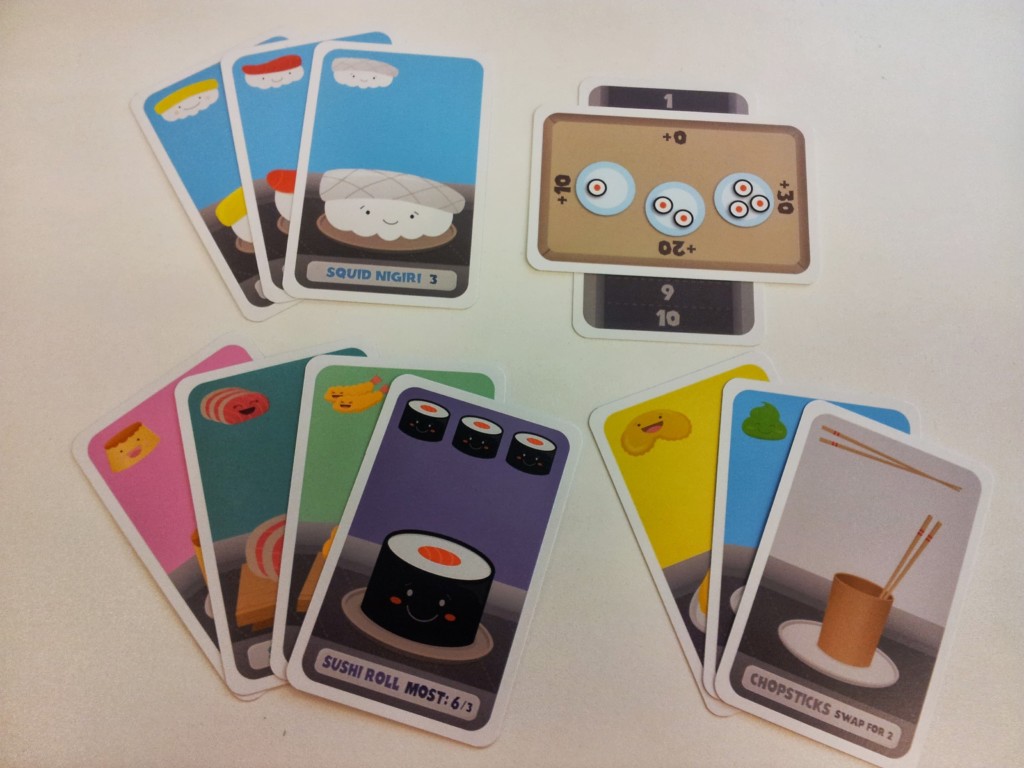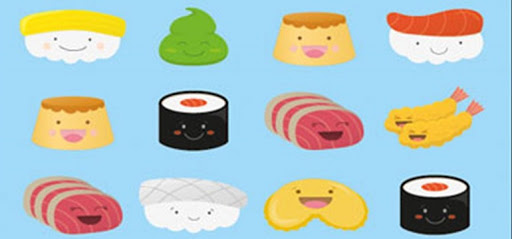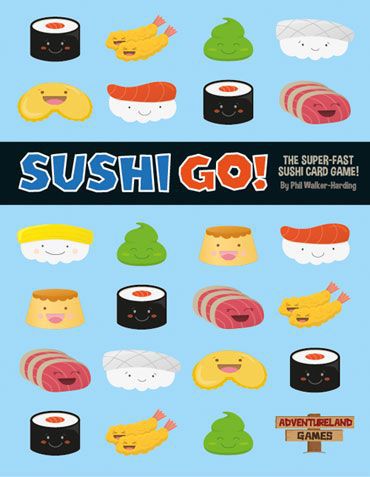Sushi Go! is a game I played a lot when I got into the hobby but I didn’t give it the blogging attention it needed.
Now is the time…
You are eating at a sushi restaurant and trying to grab the best combination of sushi dishes as they whiz by.
Sushi Go! Game Play
The setup is simple. Shuffle the deck and deal out 7-10 cards depending on the player count.
The gameplay works as a basic card drafting game. Players will choose a card and put it face down, everyone will simultaneously reveal it and then pass their hand to the player on their left. Repeat.
Once all cards are played you score but there are a couple of cards that have actions to take during this drafting phase.
If you have a Wasabi card in your play area, you must place the next Nigiri card you play on top of it.
If you have a Chopsticks card in play, on a future hand you can take 2 cards instead of 1 and return the chopsticks from your play area into that hand before passing it.
So yes, continue until the end of the round then score. All the different Sushi cards score in different ways.

Scoring
Tempura scores 5 points per set of 2 and Sashimi scores 10 points per set of 3. Anything outside of those sets scores 0.
Your sets of Dumplings are worth 1-15 points depending on if you have 1-5 of them.
The 3 types of Nigiri score 1-3 points each but they are tripled if they are on a Wasabi card.
Once points have been assigned, gather up all non-Pudding cards, shuffle and play two more rounds.
At the end of the game, the player with the most Puddings gets 6 points and the fewest gets -6 points.
The player with the most points is the winner.
Theme
The main part of the theme is the representation of Sushi on one of those conveyor belt things. This rotating is simulated by the hands of cards being drafted. That makes sense to me.
Also, getting points for eating the most puddings makes sense, that makes you a winner in my eyes 🙂
Setup & Rulebook
Setup is just shuffling the cards VERY well and dealing out cards to each player depending on the player count. Stack/Pile shuffling is suggested.
The rulebook is a very well-laid-out tiny booklet with scoring examples and a small summary bit. Perfect for a book this size.
Components & Artwork
The cards are nice and standard and fit in a pocket-sized box. I believe newer versions come in a larger tin which is a shame.
The artwork is really cute, food with smiley faces.

Ease of Teaching & Accessibility
The game is 90% easy to teach. The other 10% comes from the rule for Chopsticks. This is really a difficult-to-teach card, made extra frustrating as the rest of the cards barely need any explaining.
If accessibility is an issue, the cards are passed left so you can seat an experienced player to a new player’s right to help them out.
Sushi Go! Summary
There are of course many other drafting games, 7 Wonders immediately comes to mind but we’re talking very different levels here.
While one is a 10-minute game and the other is just a 30ish-minute game, they are very different in weight. But these are good examples for me. Sometimes I want to play 7 Wonders, sometimes I want to play a Sushi Go! It’s good to have options.
As simple as it is it’s still good fun. Collecting sets, daring to go for something you know you may never complete. Looking around the table to see what’s gone and trying to remember which cards you have passed.
It has been left behind by Sushi Go Party! which is the same game but adds plenty of variation game to game as you can change the cards involved.
But Sushi Go! will always have a place as a fun, simple filler.
Jesta ThaRogue



Leave a Reply